第7章 ABERDEEN(2)
In the library I was shewn some curiosities;a Hebrew manuscript of exquisite penmanship,and a Latin translation of Aristotle's Politicks by Leonardus Aretinus,written in the Roman character with nicety and beauty,which,as the art of printing has made them no longer necessary,are not now to be found.This was one of the latest performances of the transcribers,for Aretinus died but about twenty years before typography was invented.This version has been printed,and may be found in libraries,but is little read;for the same books have been since translated both by Victorius and Lambinus,who lived in an age more cultivated,but perhaps owed in part to Aretinus that they were able to excel him.
Much is due to those who first broke the way to knowledge,and left only to their successors the task of smoothing it.
In both these colleges the methods of instruction are nearly the same;the lectures differing only by the accidental difference of diligence,or ability in the professors.The students wear scarlet gowns and the professors black,which is,I believe,the academical dress in all the Scottish universities,except that of Edinburgh,where the scholars are not distinguished by any particular habit.
In the King's College there is kept a public table,but the scholars of the Marischal College are boarded in the town.The expence of living is here,according to the information that Icould obtain,somewhat more than at St.Andrews.
The course of education is extended to four years,at the end of which those who take a degree,who are not many,become masters of arts,and whoever is a master may,if he pleases,immediately commence doctor.The title of doctor,however,was for a considerable time bestowed only on physicians.The advocates are examined and approved by their own body;the ministers were not ambitious of titles,or were afraid of being censured for ambition;and the doctorate in every faculty was commonly given or sold into other countries.The ministers are now reconciled to distinction,and as it must always happen that some will excel others,have thought graduation a proper testimony of uncommon abilities or acquisitions.
The indiscriminate collation of degrees has justly taken away that respect which they originally claimed as stamps,by which the literary value of men so distinguished was authoritatively denoted.
That academical honours,or any others should be conferred with exact proportion to merit,is more than human judgment or human integrity have given reason to expect.Perhaps degrees in universities cannot be better adjusted by any general rule than by the length of time passed in the public profession of learning.An English or Irish doctorate cannot be obtained by a very young man,and it is reasonable to suppose,what is likewise by experience commonly found true,that he who is by age qualified to be a doctor,has in so much time gained learning sufficient not to disgrace the title,or wit sufficient not to desire it.
The Scotch universities hold but one term or session in the year.
That of St.Andrews continues eight months,that of Aberdeen only five,from the first of November to the first of April.
In Aberdeen there is an English Chapel,in which the congregation was numerous and splendid.The form of public worship used by the church of England is in Scotland legally practised in licensed chapels served by clergymen of English or Irish ordination,and by tacit connivance quietly permitted in separate congregations supplied with ministers by the successors of the bishops who were deprived at the Revolution.
We came to Aberdeen on Saturday August 21.On Monday we were invited into the town-hall,where I had the freedom of the city given me by the Lord Provost.The honour conferred had all the decorations that politeness could add,and what I am afraid Ishould not have had to say of any city south of the Tweed,I found no petty officer bowing for a fee.
The parchment containing the record of admission is,with the seal appending,fastened to a riband and worn for one day by the new citizen in his hat.
By a lady who saw us at the chapel,the Earl of Errol was informed of our arrival,and we had the honour of an invitation to his seat,called Slanes Castle,as I am told,improperly,from the castle of that name,which once stood at a place not far distant.
The road beyond Aberdeen grew more stony,and continued equally naked of all vegetable decoration.We travelled over a tract of ground near the sea,which,not long ago,suffered a very uncommon,and unexpected calamity.The sand of the shore was raised by a tempest in such quantities,and carried to such a distance,that an estate was overwhelmed and lost.Such and so hopeless was the barrenness superinduced,that the owner,when he was required to pay the usual tax,desired rather to resign the ground.